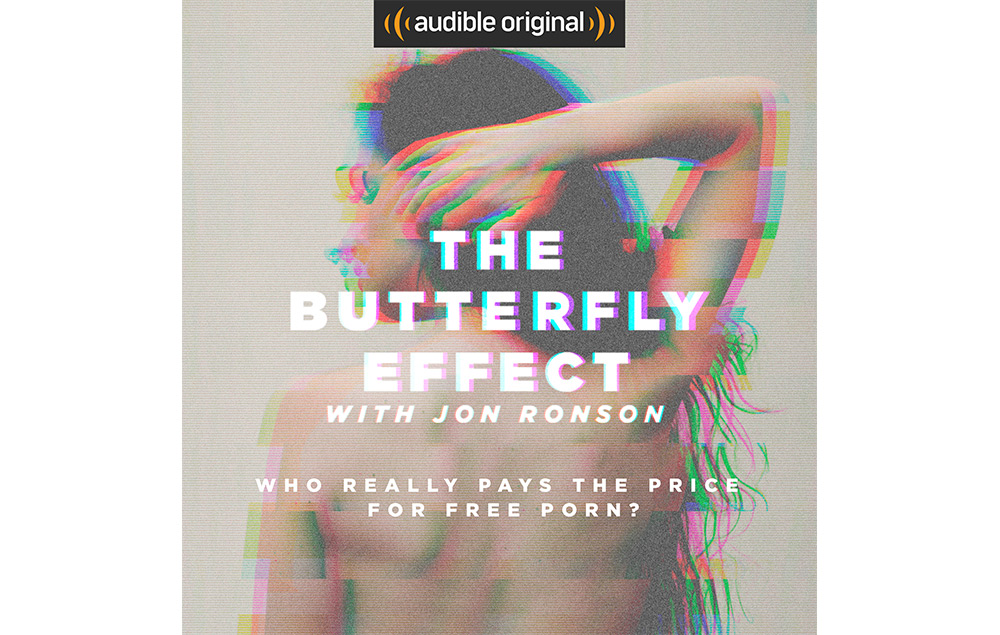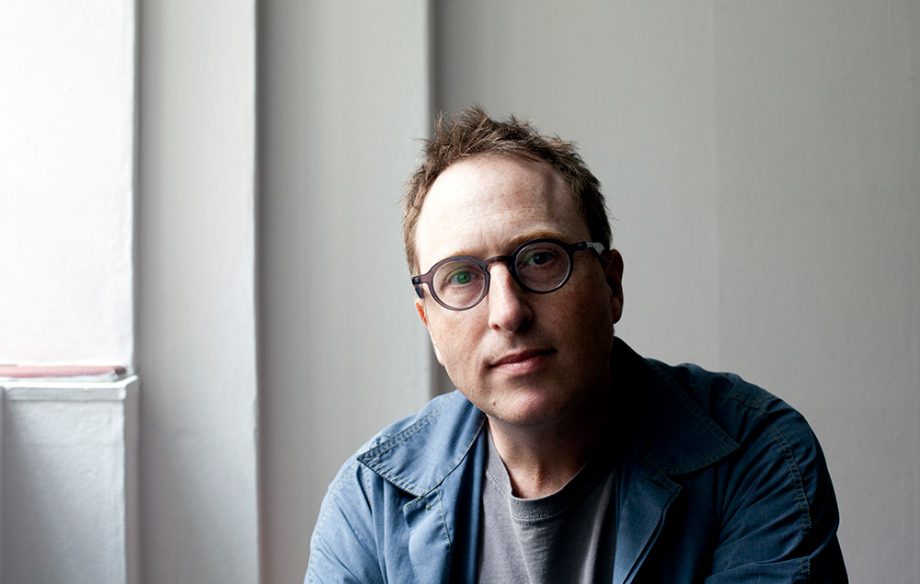Jon Ronson’s new podcast, The Butterfly Effect, examines the colossal and far-reaching impact of the porn industry.

Porn is more prevalent than ever before. It’s watched by 82% of men and 60% of women and has been labelled a ‘public health crisis’ by five U.S. states. Pornhub, the largest online pornography site, receives more visitors than Amazon, the BBC and CNN combined. It’s easier to find than ever, and it’s free. Yet we still have no real idea of the ramifications of porn filtering into mainstream culture, readily available to anyone with a phone.
Writer Jon Ronson (bestselling author, documentarian and screenwriter) explores these questions and more in The Butterfly Effect, a provocative and eye-opening seven-part audio series available on Audible and due to be released in podcast form early this November, via iTunes.
Ronson goes behind-the-scenes of the porn industry, loitering on the sets of porn shoots, investigating the changing fortunes of the actors, filmmakers and consumers, speaking to tech-heads and directors, and thereby grappling with porn’s most contentious issues. He explores why people are seemingly uncomfortable with porn stars off the screen; the daily lives of what Ronson calls ‘porn women’ and ‘porn men’ (oddly charming, don’t you think?); the rapidly changing economics of the industry; and the complicated world of desire. It’s a provocative journey that unfolds in a madly unpredictable way.

At the heart of the series is porn’s digital revolution and the unanticipated cultural impact that has transpired. The story of porn’s transformation kicks off (Ronson argues) with a seemingly isolated event: German tech guru, Fabian Thylmann, masterminds the idea of providing free online porn and, in 2010, goes on to buy the company that owns the streaming site PornHub. Two years later, Thylmann consolidated the free-porn industry, buying up and conglomerating almost all his competitors under the rubric Manwin (now MindGeek). 80% of people watching porn in 2012 were doing so on one of Thylmann’s sites. By 2013, PornHub was garnering 70 million visitors every day and countless lives on both sides of the screen had begun to be wildly disrupted.
Thanks to the innovation of one man—‘the flap of a butterfly’s wings,’ Ronson argues—millions of lives have been upended and caused disastrous impact on the people who work within the industry. This strand of Ronson’s story is a relatable one, albeit with a few unusual tweaks. The story of an industry made unviable through its own digital revolution is all too familiar in 2017.
Like many musicians, filmmakers and journalists, porn producers and actors are treading water in an industry that no longer provides them with the monetary recompense it did just a few years ago. Yet the shame around the industry means cast and crew also lack the ability to appeal to their audience’s conscience, since most porn-users are uncomfortable with the idea of porn-makers as real people off the screen with bills to pay. Behind the safety of a computer screen, the humanity of porn’s makers is all too easy to forget. ‘Everybody’s complicit, and nobody wants to think about it,’ says Ronson. ‘It’s within that hypocrisy that exploitation lies.’
The most compelling of Ronson’s episodes centre on the why of the porn industry. Like people, sex is complicated and pornography is increasingly at the heart of that. To have tunnel vision concerning porn’s malign influence is to ignore what the industry really reveals about desire.

Ronson spends two episodes exploring the growing demand for bespoke porn, where enterprising actors and producers have set up the lucrative business of making tailored videos catering to client’s specific tastes. One of these scenarios sees Wonder Woman sitting on a sofa and contemplating going outside, until she is overpowered by a gremlin who restrains her. These kinks reveal desire to be a personal narrative, and the custom films a replaying, or reimagining, of this narrative. The man who requested the Wonder Woman film told the video’s producers that his mother abandoned his family when he and his brothers were small, remembering that he tried to prevent her from leaving by sitting on her suitcase.
As Ronson succinctly puts it, “The Butterfly Effect is sort of about porn, but it’s about a lot of other things.”
And indeed, Ronson stays true to his promise. The Butterfly Effect touches on so much more than just the porn industry. Exploring the impact of search engine optimisation, which has witnessed a shrinking pool of labels, Ronson explains that now “people are only searching for ‘teen’ and ‘MILF.’” This need to compartmentalise, Ronson muses, is part of a wider problem stemming from the age of the internet:
“In social media, it’s the same thing. It’s why we’ve got Trump – to get heard or listened to, you need to be either an aggressively authoritarian left-winger or an aggressively authoritarian right-winger. Those of us sort of gentle people in the middle are getting kind of lost, you know?”
More so than the series’ wide-reaching and detailed journalism, it is the way Ronson humanises his subjects that makes for an exceptionally moving audio experience. There’s nothing judgmental or titillating about the reporting – cutting the visual aspect undoubtedly helps the story move more toward the serious, than the salacious. It’s an oddly uplifting take on what is so often painted two-dimensionally as an evil industry.
The Butterfly Effect is available to listen on Audible, here and will be available on iTunes from November.







